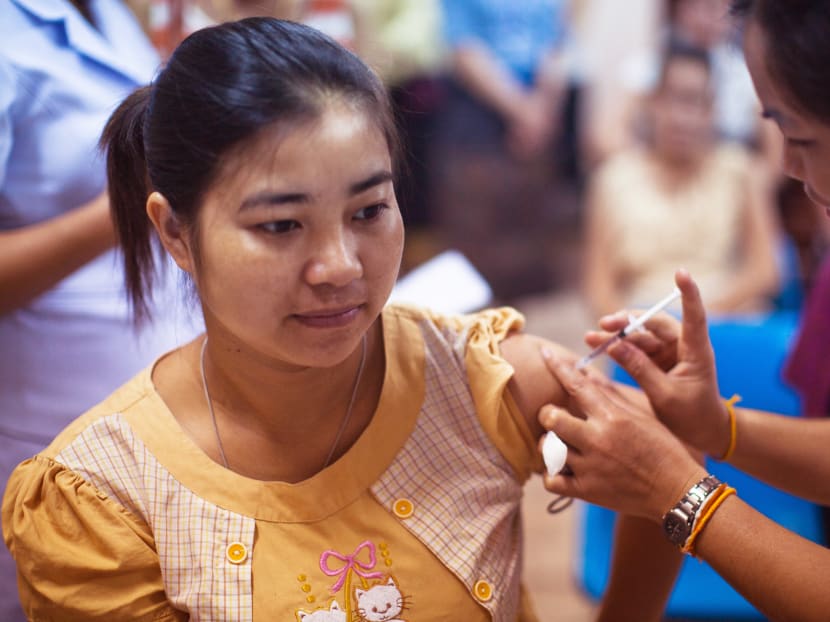Sabah polio outbreak a rare strain, genetically confirmed from Philippines: WHO, Unicef
KUALA LUMPUR — The re-emergence of the polio in Malaysia after 27 years is from the same virus that broke out and is spreading in the southern Philippines, the World Health Organisation (WHO) and the United Nations Children's Fund (Unicef) confirmed.

KUALA LUMPUR — The re-emergence of the polio in Malaysia after 27 years is from the same virus that broke out and is spreading in the southern Philippines, the World Health Organisation (WHO) and the United Nations Children's Fund (Unicef) confirmed on Monday (Dec 9).
The two world bodies added that the type of polio virus contracted by the three-month old boy in Tuaran, Sabah is a rare strain called circulating vaccine-derived polio (cVDPV) Type 1.
“These polio viruses only occur if a population is seriously under-immunised,” the WHO and Unicef said in a joint statement on Monday.
“The virus has the potential to cause paralysis or occasionally death,” they added.
The organisations said confirmation of the type of virus was based on testing conducted by the WHO’s Regional Polio Reference Laboratory in Melbourne, Australia on Dec 6 to 10 after the Sabah boy developed fever and paralysis.
The Philippines declared a polio outbreak on Sept 19, WHO and Unicef pointed out, noting that Malaysia’s last case was 27 years ago in 1992.
WHO and Unicef said they have been assisting Malaysia with technical advice on the outbreak response, on-the-ground monitoring and support for risk communication.
The two bodies advised parents and guardians to ensure that their children, especially those under five years old who are at highest risk, get the full number of vaccination shots for full protection.
They gave an assurance that polio vaccines are very safe and are the main reason for 99 per cent of the reduction of cases worldwide.
The anti-vaccination movement in Malaysia has been growing in recent years, with Malaysia's Deputy Health Minister Dr Lee Boon Chye saying in March that the inoculation rate for measles-mumps-rubella (MMR) has dropped to 89 per cent from 95 per cent required for mass protection.
Among the arguments forwarded by the anti-vaxxer group are the questionable halal status of the vaccines, which some insisting they contain porcine DNA despite assurances from the National Fatwa Council.
“WHO, alongside Unicef, stands ready to support the Ministry of Health in responding to this outbreak and ensuring that all children in Malaysia receive the full protection of polio vaccines,” Dr Ying-Ru Lo, the WHO representative in Malaysia said in the statement, expressing deep concern at the reappearance of the highly contagious illness.
“The only effective way to protect children from polio is vaccination,” Unicef's Malaysian representative Marianne Clark-Hattingh said in the same statement.
“We must make it a priority to stop its transmission so that every child, regardless of their economic status or origin, is protected against this terrible disease,” she added.
Malaysia’s Health Minister Dzulkefly Ahmad said last night that the Sabah infant contracted the polio virus before he could get his second vaccination shot. MALAY MAIL






